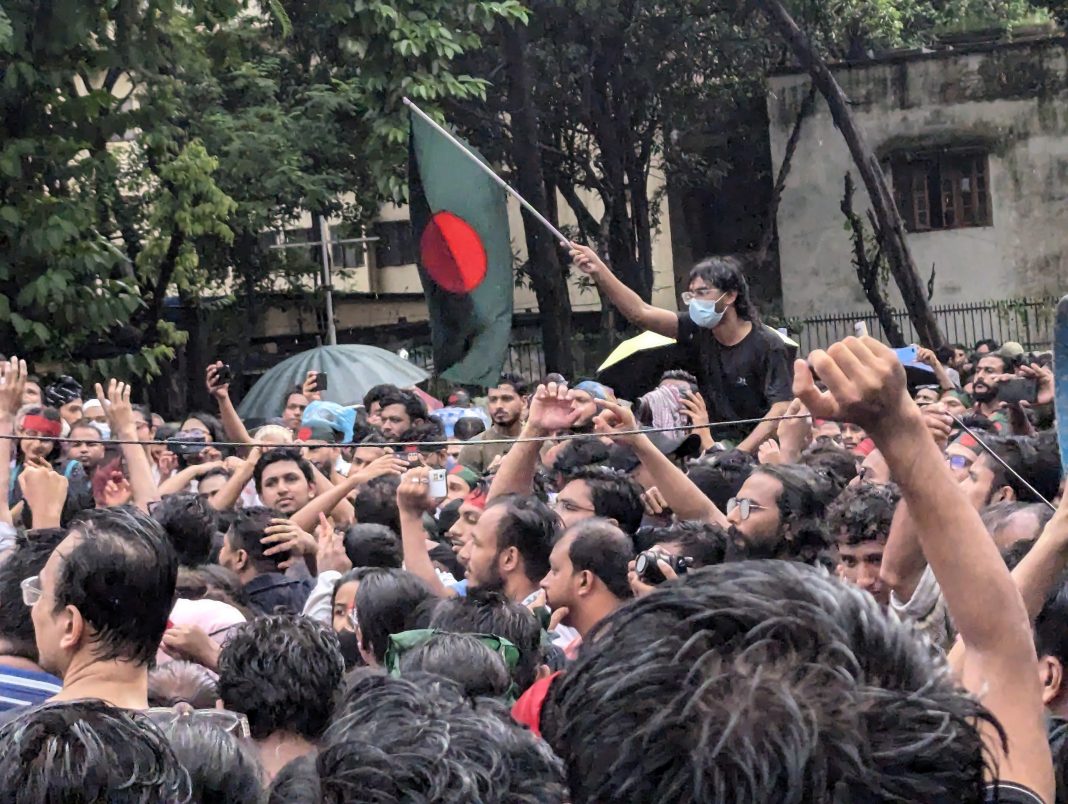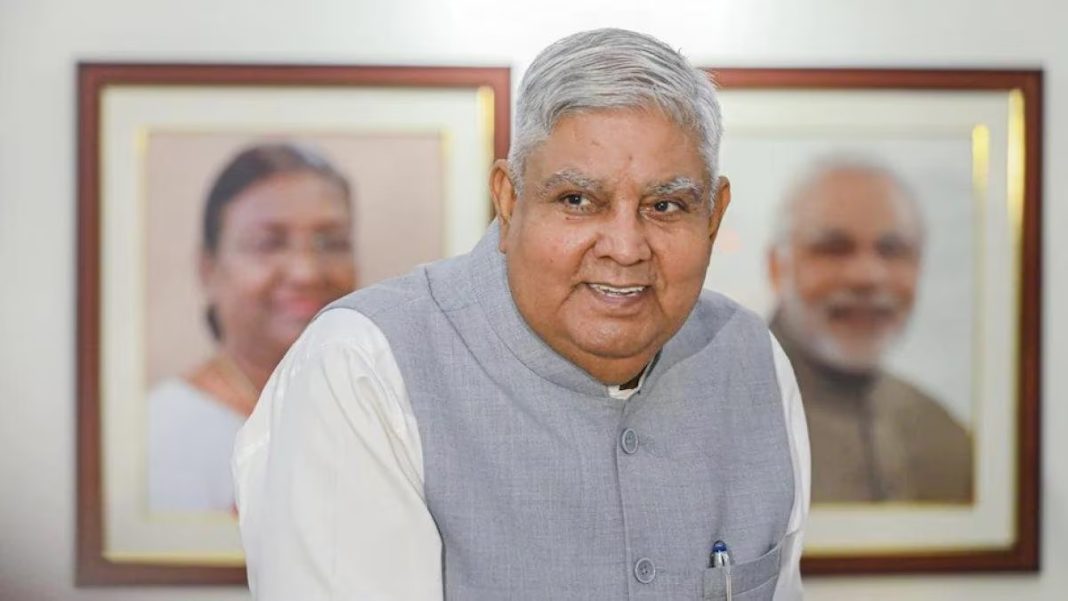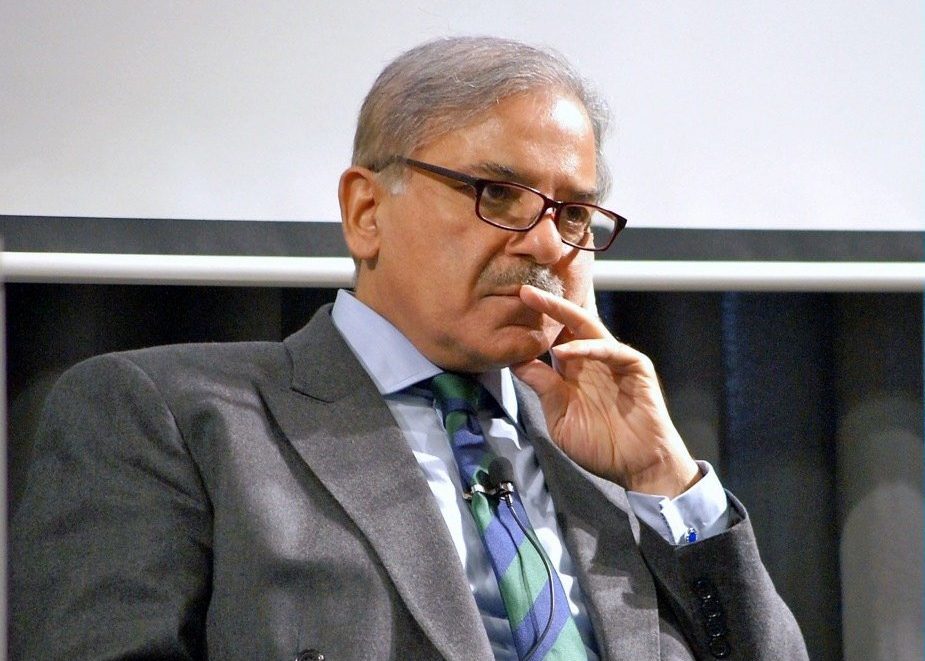Dhaka, Sept 29: Hindu community leaders in Bangladesh are advocating for the formation of a dedicated political party, reflecting an urgent call for political representation to protect their rights and ensure their safety in an environment marked by instability and fear.
Hindu leaders from the Bangladesh Hindu Buddhist Christian Unity Council (BHBCOP) and other groups have been at the forefront of discussions about establishing a separate political party or demanding reserved parliamentary seats.
“There are currently three opinions that are being discussed in detail: first, going back to the separate electorate system from 1954; second, establishing a separate political party for Hindus; and third, reserving seats in Parliament for minorities,” BHBCOP presidium member Kajal Debnath told PTI.
In the wake of unprecedented violence and political upheaval in Bangladesh, the Hindu community — the largest minority community in Bangladesh — stands at a pivotal crossroads.
The turmoil began after the resignation of Prime Minister Sheikh Hasina on August 5 following a student movement, a moment that triggered widespread protests and chaos.
Debnath said the data collected by the BHBCOP points to 2,010 incidents of attacks on the Hindu community, ranging from murder and physical assaults to sexual assaults, attacks on temples, and destruction of property.
There are no official figures from the Bangladesh government on the number of attacks.
“The discussions and exchanges of opinions regarding forming a political party are at the top of our priority. Although nothing has been finalised, let’s see how it pans out,” said Ranjan Karmakar, a leader from the Hindu community.
“The proposed political party could serve as a critical vehicle for change, ensuring their concerns are represented and addressed,” he pointed out.
Historically, Hindus made up about 22 per cent of Bangladesh’s population during the 1971 Liberation War, but today they represent only approximately 8 per cent.
The community members attributed this decrease in the Hindu population to socio-political marginalisation and sporadic violence, intensifying the urgency for political mobilisation.
Debnath opined that forming a party for Hindus may not work in favour of minorities, as it might divide the secular votes and not result in victory.
“The Hindu population is scattered across Bangladesh. In some areas, it comprises 35 per cent of the voters, while in most places it is 6-8 per cent of the voters. Those Hindu leaders from the Awami League who won in the last election garnered both Hindu votes and votes from Awami League supporters of other communities.”
“But if the same person contests as a candidate of a Hindu party, he or she may not be able to garner votes from other communities. So, the goal of sending representatives to Parliament won’t be served,” he pointed out.
Forming a political party prompts critical discussions about unity within the Hindu community, highlighting differing opinions on whether to collaborate with existing secular parties or to pursue an independent voice, all while striving to forge a cohesive identity that transcends internal divisions.
“We must focus on our common goals. Only by standing united can we make a significant impact. This is our moment to rise and reclaim our place in the political landscape. But as a large section of Hindus are identified with the Awami League, we too are facing attacks,” said Gobinda Chandra Pramanik, also general secretary of the Bangladesh Jatiya Hindu Mohajote.
Debnath pointed out that reserving parliamentary seats similar to how it is done for women could be a solution.
The demand for reservations is not new, as the government has previously allocated seats for women in both national and local politics, and Hindu community leaders argue that similar reservations for Hindus would give them a platform to influence policies that directly impact their safety and rights.
“If we have representatives in Parliament, they can actively advocate for our safety, security, and cultural preservation. Without representation, we risk being forgotten in political discussions, left to navigate a hostile environment alone,” he said.
Another presidium member of BHBCOP, who did not wish to be named, stated that the political parties—whether the Awami League, the Bangladesh Nationalist Party (BNP), or the Jatiya Party—have failed the Hindu minorities in the country since its birth following the Liberation War of 1971.
“Since 1971, minorities have failed to feature in the political discourse of the country. This is mainly because minorities have depended on mainstream political parties, who have time and again failed us, except when reaching out to us during elections,” he said. (PTI)




